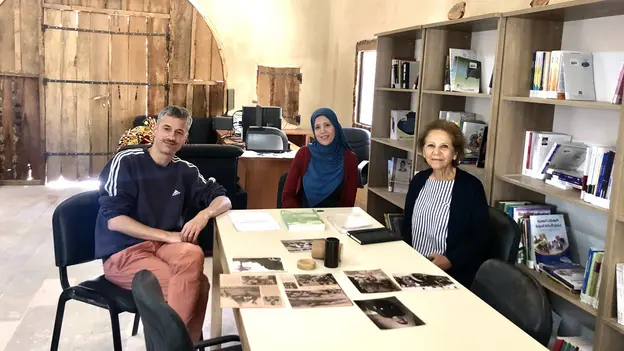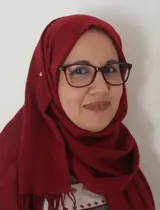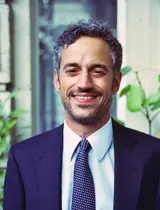Berlin Project
Digitising Intangible Heritage: Sounds of Siwa
Digital Archive
Debates on the repatriation of artefacts on display in prestigious museums in Western Europe and North America often centre on tangible forms of cultural heritage. However, intangible forms of cultural heritage such as chants, music, as well as linguistic material have been collected just as well. The vast majority of these recordings is still being stored at far distance from their origins. To access these collections can be particularly hard for international research based at research institutes outside of Europe or North America. This is in part due to the fact, that the application for visa and travel funds requires interested scholars to already know the contents of the collection in detail.
Enabling research by providing access to historic sounds of the Oasis Siwa
To enhance the accessibility of the recordings, AGYA members Dr. Nadia Bahra and Dr. Matthias Pasdzierny developed an open global search interface, ArabicPhonogramSearch, for archives and individual collections. Together with international experts, they have created a prototype of the search engine based on a set of recordings stored in the most important archives and museums in the field. A special focus lies on the collection of the musicologist Dr. Brigitte Schiffer (1909-1986), which contains recordings made in the Egyptian Oasis of Siwa. The recordings are engraved in wax cylinders and resulted from the musicologist’s interest in the cultural practices of the oasis’ Amazigh community and their distinct oral and musical tradition. Potential paths to enhance the access to these recordings are of increasing concern in academia and for the interested public.
The project partners digitise, annotate and comment a selected part of the recordings made by Brigitte Schiffer in the Oasis Siwa. The musicologist and journalist visited the Oasis Siwa and its Amazigh communities twice, in 1932-33, in the context of her PhD in ethnomusicology. Brigitte Schiffer (1909-1986) bridges European and Arabic music cultures and stands for an attitude that could be described as postcolonial avant la lettre: Schiffer developed numerous concepts, trying to bring together music theory, musicology and composition from ‘East and West’ as complementary elements. Various publications, her own compositions and, above all, her numerous letters provide information about her ideas and work.
Her collection, altogether around 50 wax cylinders, contains recordings of chants by women and groups of children, instrumental music, yelling by street sellers as well as songs by workers and peasants. Her recordings are now being stored in Berlin as part of the collections of the Phonogramm-Archiv. The archive is hosting a collection of phonograph cylinders, containing historic recordings of Arabic chants, music, as well as linguistic material from different Arabic-speaking regions, like Tunisia, Yemen, Syria, Palestine or also the Oasis of Siwa in Egypt. The recordings were made between 1885 and 1940 by Western ethnologists, archaeologists and other researchers. The recordings of Brigitte Schiffer document Siwi, the Amazigh dialect spoken only in Siwa, in a very early state and are invaluable for research, but also for the local community.
Reconnecting sounds with communities
To engage in direct exchange with representatives of the local community, the project partners conducted a research trip to the Oasis Siwa. As a music historian, who has investigated the collector’s trajectory and the creation of the collection, AGYA member Matthias Pasdzierny, was accompanied by an ethnomusicologist, who is an expert on repatriation as ‘reanimation and reciprocity’ (Fox 2013), and a linguist, who conducted field research in Siwa for more than ten years. In cooperation with the Endangered Languages Archive the research outcomes of this trip will result in an annotated digital archive of Brigitte Schiffer’s collection, several articles and film documents.
This project builds on previous AGYA research projects. The translation and publication of selected letters by Brigitte Schiffer from German to Arabic in the publication ‘Brigitte Schiffer: Letters from Cairo, 1935–63’ stimulated the discussion about artistic and intellectual exchange processes and the role of European migrants in the cultural life of their Arab host countries, particularly Egypt, in the first half of the twentieth century. In the same vein, the AGYA workshop ‘Access to Waxes’ centered around the Arab collection of the Berlin Phonogramm-Archiv (PA), which is part of the UNESCO Memory of the World Program (World Documentary Heritage). Together, the research projects intend to provide the impetus for reflections on transnational historiography and to highlight the importance of translation processes for the transfer and exchange of knowledge.
- Disciplines Involved
- Archival Studies, Ethnology, Linguistics, Musicology, Sociology
- Cooperation Partners
- Germany: Berlin-Brandenburg Academy of Sciences and Humanities, Endangered Languages Archive, Ethnologisches Museum Berlin / Stiftung Preußischer Kulturbesitz, Humboldt Forum Berlin
- Egypt: Cultural Palace Siwa, Misr Public Library (MPL) Siwa, Black Lions Library Siwa
- Austria: Austrian Academy of Sciences / Phonogrammarchiv
- USA: Harvard Library, Loeb Collection
- Funding Partner
- Berlin Senate Department for Science, Health and Care
- Affiliated Project
- Arab-German Perspectives on Fatherhood in Berlin
- New Forms of Publishing - Letters From Cairo
- Project Title
- From phonograph to web 3.0. Berlin’s historical sound recordings from the Arab regions
- Year
- 2022 - 2023
- Funding Scheme
- Berlin Project
- Countries Involved
- Egypt, Germany, Algeria, Austria, Lebanon, Oman, Tunisia, United States of America


